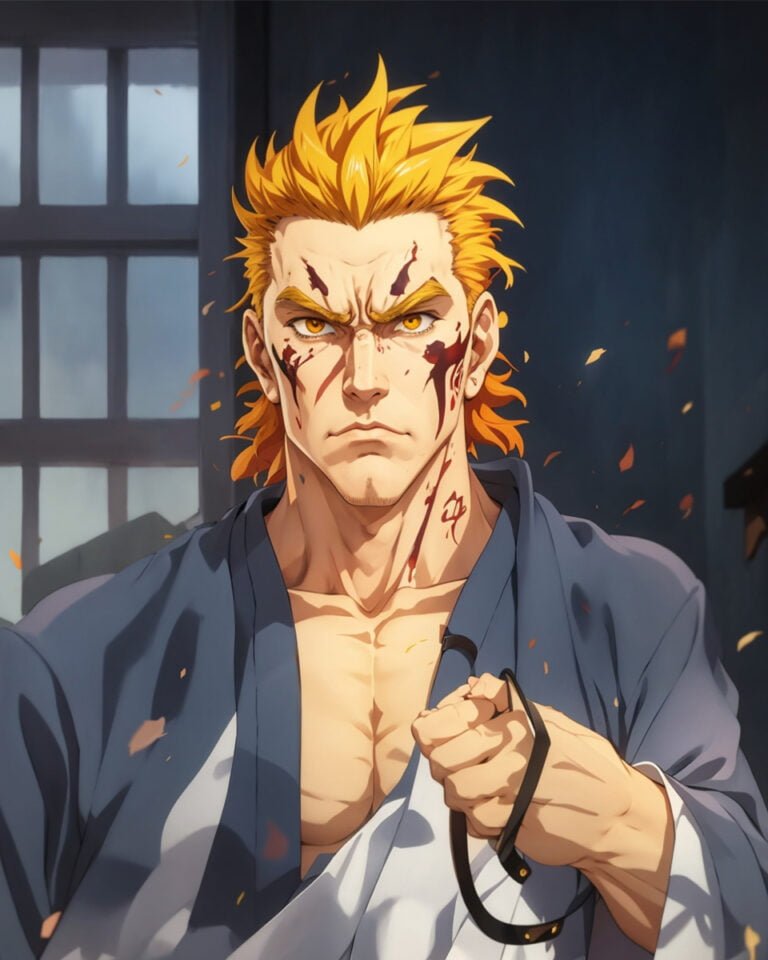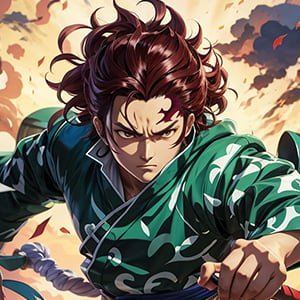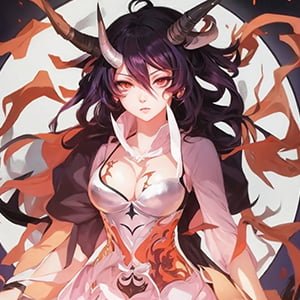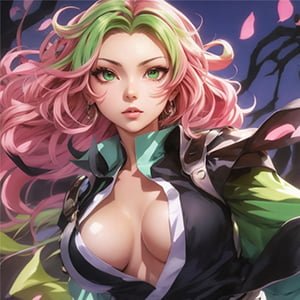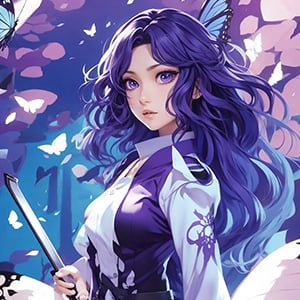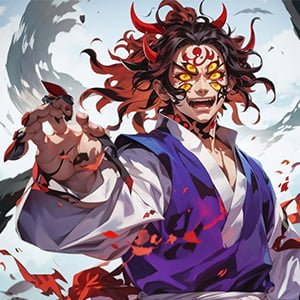Who is Shinjuro Rengoku?
Shinjuro Rengoku is a character who carries the weight of his past and the legacy of the Flame Hashira within the narrative of “Demon Slayer: Kimetsu no Yaiba.” His physical appearance, with distinctive fiery hair and intense eyes, is a visual testament to his former role as a protector and warrior against demons. The resemblance to his sons, Kyojuro and Senjuro, not only connects them by blood but also by the burden and honor of the Hashira title.
Shinjuro’s demeanor, often perceived as furious or intense, reflects the inner turmoil and the pressures of living up to the expectations of being a Hashira. His traditional attire, coupled with the flame-patterned haori and katana, symbolizes the fiery spirit and the heritage of the Flame Hashira that he passed on to his son Kyojuro.
As a character, Shinjuro’s journey is marked by struggle, including coping with the loss of his wife and the expectations he places on his sons, particularly Kyojuro, to uphold the family’s legacy. His relationship with his children is complex, marred by his own grief and the harshness with which he regards their paths, especially in light of Kyojuro’s dedication to the Demon Slayer Corps and Senjuro’s decision to take a different route.
Shinjuro’s arc is one of redemption and reconciliation, as he confronts his own failings as a father and a Hashira. His story serves as a backdrop to the growth and development of Kyojuro, who becomes a beloved and respected Flame Hashira, embodying the values and strength that were once synonymous with Shinjuro himself.
In the broader context of the series, Shinjuro Rengoku represents the generational challenges and the passing of the torch from one Hashira to the next, highlighting the themes of legacy, responsibility, and the personal cost of the battle against the demonic forces that threaten their world.
Shinjuro Rengoku’s Personality and Background
Shinjuro Rengoku is a complex character with a tumultuous emotional landscape, deeply affected by the responsibilities and tragedies associated with his role as the former Flame Hashira. His short temper and abusive behavior, particularly in the wake of his son Kyojuro’s death, paint a picture of a man struggling with grief and anger. His alcoholism serves as an escape from the burdens he carries, further complicating his relationships with those around him, including his surviving son, Senjuro.
Despite his harsh exterior and the inferiority he feels upon comparing the Flame Breathing style to the original Sun Breathing, Shinjuro’s deeper emotions are revealed through his tears and the love he holds for Kyojuro. His breakdown upon remembering his son indicates a profound sense of loss and regret, suggesting that his abrasive demeanor may be a facade for his pain.
Shinjuro’s journey is not without redemption. His vow to uphold the Rengoku family’s honor and to follow in Kyojuro’s footsteps indicates a desire to change and honor his son’s legacy. His actions in defending the Ubuyashiki Family alongside Tengen Uzui show that beneath his flawed exterior lies the heart of a warrior committed to protecting others.
The backstory of Shinjuro’s descent into alcoholism following his wife’s death provides context for his behavior. His encounter with Hairo, where he unleashes his rage and despair, highlights his internal conflict between duty and the futility he feels in the face of relentless adversity. This moment of vulnerability showcases the depth of his character and the internal battle he wages between his sense of duty and his overwhelming grief.
Shinjuro’s past acts of heroism, such as saving a young woman and her daughter, and later Obanai Iguro from a demon, attest to his capabilities as a Hashira and his inherent desire to protect. These glimpses of his former self contrast with his later life, marked by sorrow and disillusionment.
Ultimately, Shinjuro’s decision to tear apart the Generational Flame Hashira Record symbolizes his rejection of the past and his struggle to come to terms with his identity and legacy. His character arc is a poignant reflection on the impact of loss, the weight of legacy, and the possibility of finding a path to redemption amidst personal demons.

